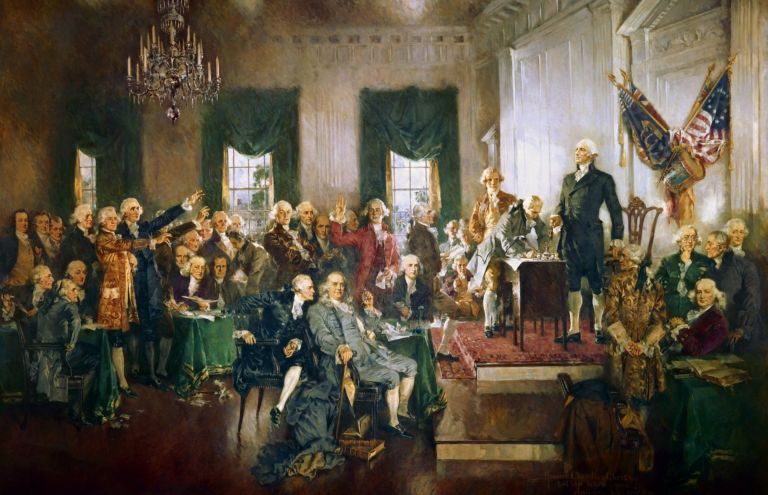Robert Arvay writes for the American Thinker about the significance of today’s fight for freedom.
The year 1865 marked the end of slavery. It was an inflection point in history. Until 1800, institutional slavery had always been the norm, unquestioned for thousands of years. Male and female, free and slave, these were almost universally accepted as being the major bifurcations of people. After the Civil War, tyrants often interrupted the decline of slavery, but 1865 marked the inflection point, the inevitability of its demise.
Today, we are approaching another inflection point of historic proportions. It will be the culmination of the ages-long struggle between top-down rule of the masses and true freedom: the self-government of the ordinary man and woman. That struggle is being waged even as you read this, and the outcome will either free us or enslave us more deeply than it crushed the rebel slave Spartacus.
It can be validly argued that the present trend toward self-rule was already well underway in 1776, but it never culminated, as would slavery almost ninety years later. Indeed, after 1865, the idea of self-rule began, in practice, to be reversed, as the powers of the several states gave way to the ever-increasing authority of the victorious central government in Washington, D.C. That authority is now poised, and this is no exaggeration, at the brink of totalitarian control.
All of this helps to explain the present: the impending climax of that historic struggle is nigh upon us. The grand experiment in self-government is facing its greatest challenge since (metaphorically speaking) the Battle of Bunker Hill. As George Washington put it, “the time is near at hand which must determine whether Americans are to be free men or slaves.”
Our Founders recognized this struggle, and resolved it — on paper, but their solution soon began to unravel during a series of crises, including the issue of slavery. Even so, after 1865, the freedom movement continued, albeit more underground than we would like, and the flame has not died, not yet. Whether it will be extinguished depends on the actions of people now living.


